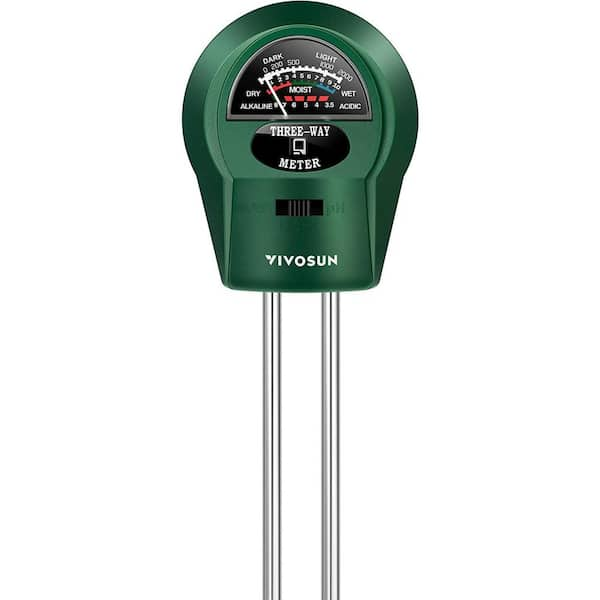Moisture Meter Acquiring Guide: What to Search for in High-Quality Instruments
Moisture Meter Acquiring Guide: What to Search for in High-Quality Instruments
Blog Article
The Ultimate Guide to Wetness Meters: A Comprehensive Introduction and Just How They Can Conserve You Cash
Wetness meters offer as essential tools in detecting and checking moisture web content in materials, assisting in stopping expensive problems and ensuring the top quality of products. Comprehending the subtleties of various kinds of moisture meters, their applications, and the prospective cost-saving advantages they offer can be a game-changer for organizations and experts alike.
Kinds of Wetness Meters
One common kind is the pin-type moisture meter, which measures the electric resistance between 2 pins placed into a material. Pinless moisture meters, on the other hand, use electromagnetic sensing unit plates to check a bigger area without causing damage to the product's surface area.

Moreover, there are likewise specialized moisture meters designed for details materials like soil, hay, or grain. These meters offer exact dampness analyses tailored to the distinct residential or commercial properties of the product being checked. Infrared dampness meters gauge the thermal properties of a material to determine its dampness content non-invasively, making them beneficial for applications where pin or pinless meters may not appropriate. Recognizing the different kinds of moisture meters available can aid markets pick the most ideal device for their specific moisture dimension needs.

Advantages of Using Wetness Meters
Wetness meters offer indispensable benefits in precisely checking and assessing wetness degrees in varied materials and environments. One of the main benefits of using wetness meters is the prevention of potential damage caused by excess wetness.
Furthermore, making use of moisture meters can lead to boosted energy efficiency. In farming settings, dampness meters play a crucial role in optimizing crop returns by allowing farmers to keep an eye on dirt dampness levels and make notified watering decisions.
Exactly How to Choose the Right Wetness Meter
When choosing a moisture meter, it's crucial to make sure that the meter is appropriate for the specific product you will certainly be screening. Various products have varying electrical residential or commercial properties that can influence dampness analyses, so picking a meter created for your material is important for exact outcomes. By carefully evaluating these elements, you can select a dampness meter that meets your needs and gives exact dampness dimensions for your tasks.
Appropriate Techniques for Moisture Meter Usage

Price Savings With Moisture Meter Applications
How can the tactical use of dampness meters lead to significant cost savings here throughout numerous industries? Moisture meters play a vital role in price savings by avoiding prospective damage and ensuring quality assurance in different sectors. In the farming sector, wetness meters aid in determining the optimum time for collecting plants, stopping over-drying or excess moisture that can affect the end product's high quality. This exact tracking aids farmers avoid unneeded losses and maximize their yield.
In a similar way, in construction, wetness meters help stop pricey problems by detecting wetness levels in building products, such as timber or concrete, which can bring about structural problems otherwise addressed quickly. By identifying trouble locations at an early stage, specialists can take restorative steps to prevent comprehensive repair work or replacements, inevitably conserving money and time.
Additionally, in the food processing sector, wetness meters are crucial for keeping track of product high quality and making certain compliance with security regulations. By precisely gauging dampness content in food, makers can avoid putridity, maintain freshness, and lower waste, leading to significant price savings. Generally, the critical application of dampness meters is an important financial investment that can cause substantial expense decreases and enhanced effectiveness throughout various industries.
Final Thought
In verdict, moisture meters are beneficial devices for determining and spotting moisture degrees in different products. By using the best wetness meter and following proper methods, customers can efficiently stop expensive problems triggered by excess moisture.
Moisture meters offer as indispensable tools in spotting and keeping track of moisture web content in products, helping in stopping pricey damages and making certain the high quality of products. Infrared moisture meters determine the thermal properties of a product helpful resources to establish its dampness content non-invasively, making them beneficial for applications where pin or pinless meters may not be suitable.Wetness meters use invaluable benefits in precisely assessing and checking dampness levels in diverse products and atmospheres. In farming setups, wetness meters play an essential duty in optimizing crop yields by making it possible for farmers to keep an eye on dirt wetness levels and make informed irrigation choices.In verdict, wetness meters are beneficial devices for detecting and measuring dampness degrees in numerous materials.
Report this page